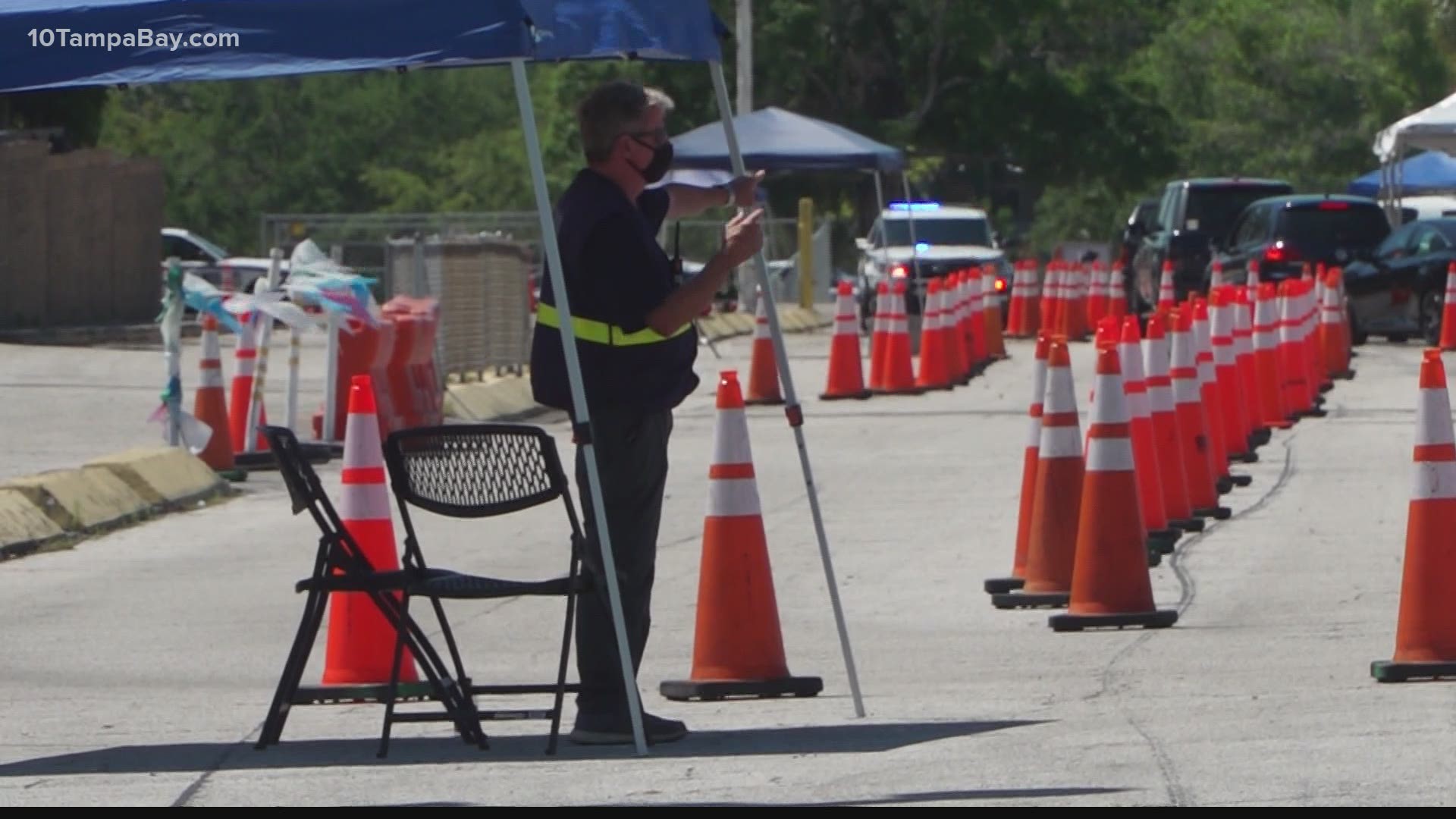The U.S. has recommended a "pause" in using the single-dose Johnson & Johnson COVID-19 vaccine in order to investigate reports of extremely rare but potentially dangerous blood clots.
On Tuesday, the Centers for Disease Control and Prevention and the Food and Drug Administration announced that they were investigating unusual clots that occurred six-to-13 days after vaccination. The FDA commissioner said she expected the pause to last a matter of days.
The clots occurred in veins that drain blood from the brain and occurred together with low platelets, the fragments in blood that normally form clots. All six cases were in women between the ages of 18 and 48. One person died, and all of the cases remain under investigation.
News of this recent development is having a far larger effect on the rollout of vaccines across the country. More than 6.8 million doses of the J&J vaccine have been given in the U.S., the vast majority with no or mild side effects.
In Florida, Gov. Ron DeSantis said the state will follow the CDC's recommendations. The governor is one of the millions of people who've received the vaccine but says he's felt no ill effects other than a temporarily sore arm.
With the state following the recommendation to suspend the vaccine, people can expect to no longer see Johnson & Johnson in both federal and local vaccination sites for the foreseeable future.
The Florida Department of Health in Hillsborough County said, in light of the recent changes, the Tampa Greyhound Track vaccination site will only dispense second doses of Pfizer.
On Tuesday, before the announcements were made, the site had already distributed 70 Johnson & Johnson vaccinations after opening at 7 a.m. Thirty minutes later, they received the word to stop.
So, what if you've already gotten the Johnson & Johnson vaccine?
Johns Hopkins Medicine says if you've received the shot more than a month ago, then the risk of experiencing these blood clots is very, very low. However, if you've received the vaccine in the last three weeks and are experiencing headaches, abdominal pain, leg pain, or shortness of breath, doctors say you should contact your health care provider.
Dr. Michael Teng with the University of South Florida Health says this is not your normal headache, it would be severe and not right after you get the shot.
"The side effects from the vaccine should dissipate within a couple of days. These are things that occur in a week to two weeks after vaccination so if you've just gotten the vaccine, those side effects, are the normal side effects that you would expect," Teng says.
If you have a reaction, you can report it to VAERS -- the Vaccine Adverse Reporting System. It's a national early warning system to detect possible safety problems in U.S.-licensed vaccines co-managed by the CDC and the FDA.
There's also V-Safe. It's a tool on your phone that uses text messaging and web surveys to do health check-ins after you get your vaccine.
This way, you can report side effects to the CDC.
What other people are reading right now:
- US recommends 'pause' for Johnson & Johnson COVID-19 vaccines over clot reports
- 'What are you afraid of,' asks mom of transgender child to Florida lawmakers
- DeSantis lashes out at YouTube for removing COVID panel discussion; Democrats blast 'waste of time'
- Derek Chauvin trial: State rests its case, defense testimony begins
- Protesters gather in Minnesota despite curfew following deadly police-involved shooting
- Police: Bomb squad dispatched after man drives truck into Tampa home, says dangerous chemicals are inside
►Breaking news and weather alerts: Get the free 10 Tampa Bay app
►Stay In the Know! Sign up now for the Brightside Blend Newsletter

